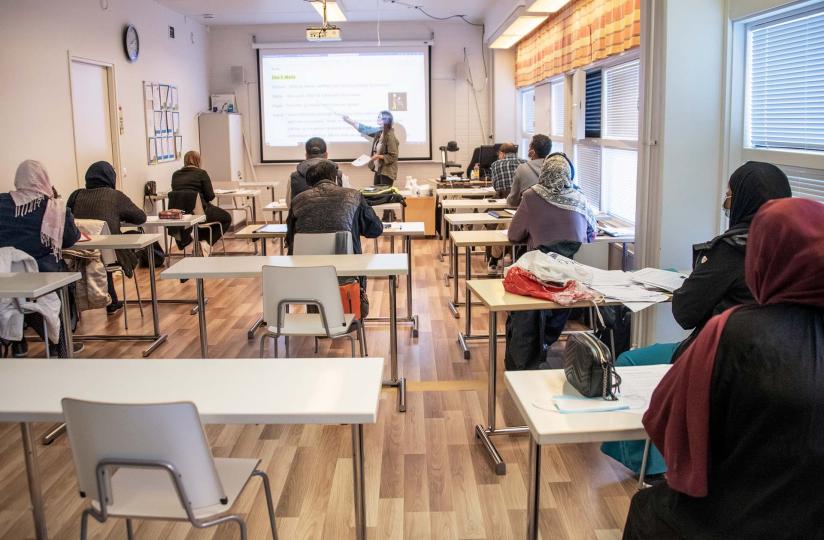Training Path helps you towards employment
Your Training Path is chosen according to your professional interests. You will either complete the Path to Employment training, which strengthens basic skills, or a profession-oriented Training Path (Vocational Path).
Vocational Paths
- Care, Education and Guidance Sector
- Service Sector (e.g. restaurant, retail)
- Cleaning and Property Maintenance Sector
In the training, you will study sector-specific content and vocabulary. You will also practise working life situations and learn more about the requirements of both working life and your chosen sector. The training includes a work placement in a workplace in your field. During the training, you may complete a hygiene passport, an occupational safety card, or other card training that supports employment.
The language proficiency requirement for OSKE’s Vocational Paths is A2–B1.
Profession-oriented Training Paths
Most training programmes may include a work placement period, planned together with the client to match their goals.
Care, Education and Guidance Sector Vocational Path
Profession-oriented training in the care, education and guidance sector prepares you to apply for vocational qualifications in these fields and to work in various roles, such as:
- classroom assistant
- care assistant
- day-care assistant
- household services operator
- personal assistant.
Service Sector Vocational Paths (Restaurant and Catering Services, Business and Retail)
Profession-oriented training in the service sector prepares you to apply for vocational qualifications in these fields and to work in various service sector roles, such as:
- food service worker
- lunch chef
- café worker
- waiter/waitress
- shelf filler
- mail carrier
- sales assistant.
Cleaning and Property Maintenance Sector (Cleaning Services and Property Maintenance)
Profession-oriented training in the real estate, cleaning and technology sectors prepares you to apply for vocational qualifications in these fields and to work in various roles, such as:
- warehouse worker
- cleaner
- property manager
- institutional cleaner
- car mechanic
- maintenance technician
- painter
- welder
- balcony glass installer
